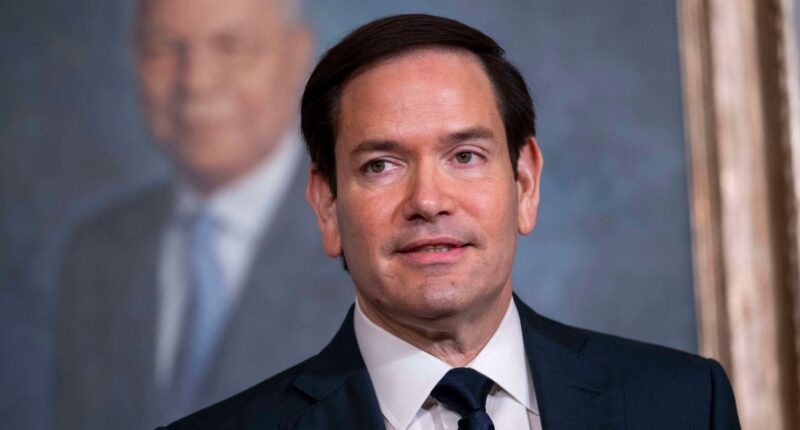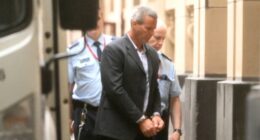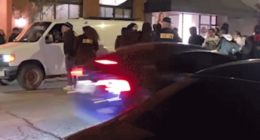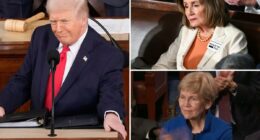Share this @internewscast.com
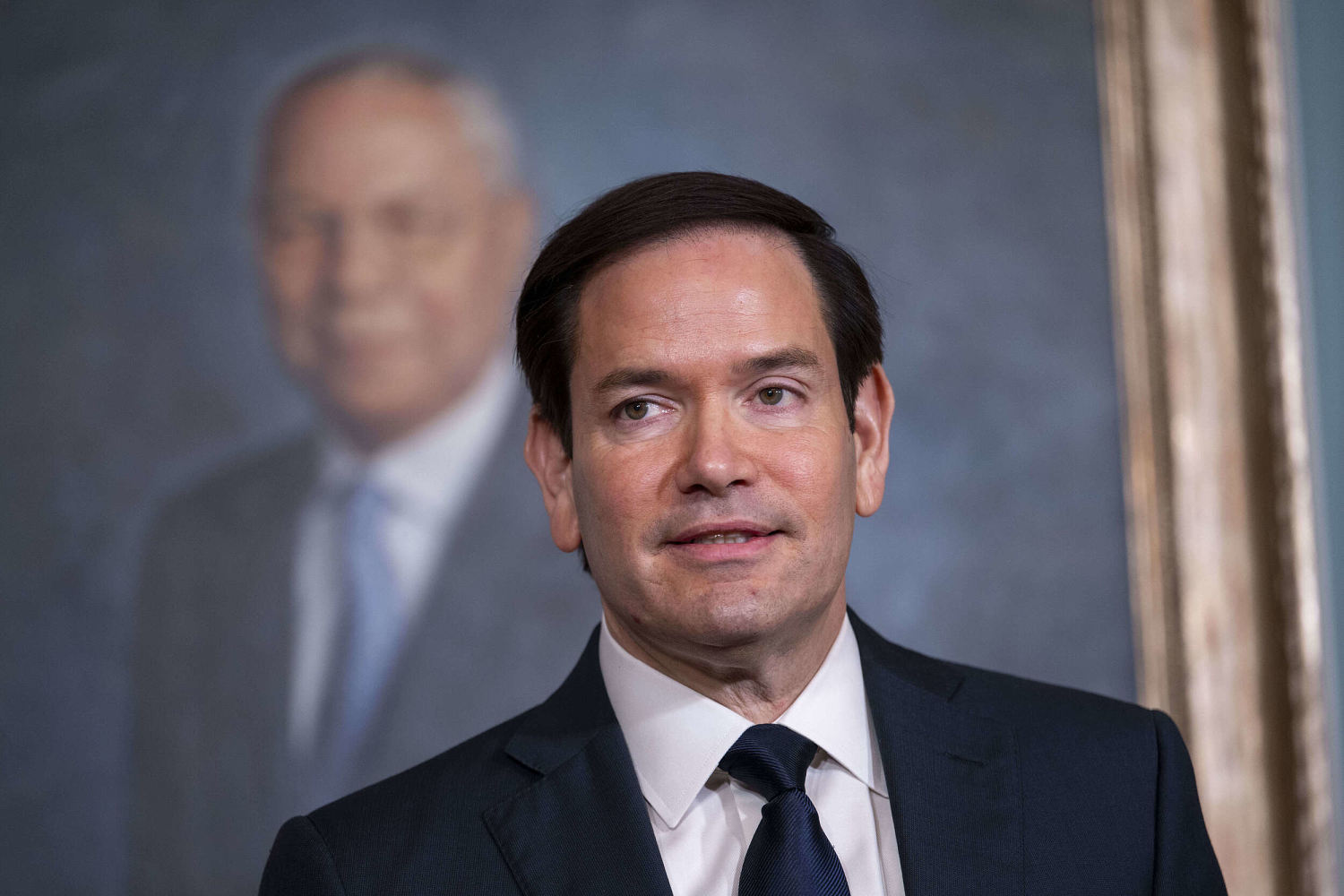
Secretary of State Marco Rubio mentioned on Sunday that a temporary ceasefire between Ukraine and Russia remains a possibility, despite leaders from the U.S., Ukraine, and Russia agreeing that a permanent peace deal would be the ideal resolution to the conflict.
Rubio explained on NBC News’ “Meet the Press” that all parties concurred that the most effective way to end the hostilities is through a comprehensive peace agreement. “There’s no question about that. I mean, who would disagree if we announced tomorrow that a full peace deal has been reached?” he stated, emphasizing that such an agreement would be the optimal way to conclude the war.
“As for whether there should be a ceasefire in the meantime, we have been in support of that,” Rubio continued. “Unfortunately, the Russians have not agreed to it yet.”
Rubio’s statements followed President Donald Trump’s return from Alaska, where he engaged in extended talks with Russian President Vladimir Putin and other Russian officials.
Although neither Ukrainian President Volodymyr Zelenskyy nor any Ukrainian representatives participated in the discussions, U.S. officials remained hopeful about encouraging Putin towards a ceasefire or a peace agreement.
After the Alaska meeting, however, the U.S. president told reporters, “There’s no deal until there’s a deal.”
During the latter part of the “Meet the Press” interview, Rubio attributed the lack of progress towards a ceasefire to Putin, while addressing queries regarding Russia’s ongoing attacks in Ukraine over recent days.
“We think usually it’s very hard to negotiate when you’re in the middle of hostilities. But that said, the only way to have a ceasefire is for both sides to agree to stop firing at one another … and the Russians just haven’t agreed to that,” he said.
Zelenskyy is headed to the White House on Monday to meet with Trump and other European leaders, including Finland’s President Alexander Stubb, German Chancellor Friedrich Merz, European Commission President Ursula von der Leyen, NATO Secretary-General Mark Rutte and U.K. Prime Minister Keir Starmer.
In Brussels on Sunday, during a joint press conference with von der Leyen, Zelenskyy emphasized the importance of a ceasefire for peace deal negotiations to continue.
“Putin has many demands, but we do not know all of them, and if there are really as many as we have heard about, then it will take a lot of time to go through all of them, and it is impossible to do this under the pressure of weapons,” Zelenskyy told reporters. “So, it is necessary to stop the fire and work quickly on a final agreement. We will talk about this in Washington. Putin does not want to stop the killings, but he must do it.”
Rubio on Sunday spoke more about the Trump administration’s decision not to impose new sanctions on Russia, despite Putin’s reluctance to move toward a peace deal, saying, “What we’re trying to do right now is end the war.”
“If we’re not going to be able to reach an agreement here at any point, then there are going to be consequences, not only the consequences of the war continuing, but the consequences of all those sanctions continuing, and potentially new sanctions on top of it as well. But what we’re trying to do right now is end the war,” Rubio told “Meet the Press” moderator Kristen Welker.
“I don’t think new sanctions on Russia are going to force them to accept ceasefire. They’re already under very severe sanctions,” he added later in the interview.
The secretary of state also said that the decision to impose new sanctions is incompatible with the fight for a lasting peace deal.
“Those options [for sanctions] remain to the president,” Rubio said. “The minute he takes those steps, all talks stop. The minute we take those steps, there is no one left in the world to go talk to the Russians and try to get them to the table to reach a peace agreement. So that moment may come. I hope not, because I hope we get a peace deal.”
Though Rubio declined to provide insight into negotiations among Ukraine, Russia, the U.S. and European allies, two points that have arisen publicly in recent weeks appear to be about territorial swaps and security guarantees for Ukraine.
“There has to be talk about what the territories are going to look like and what the border lines are going to look like at the end of this conflict. There has to be talk about Ukraine’s legitimate desire for security in the long term to make sure they don’t get invaded again,” Rubio said Sunday. “There has to be talk about how Ukraine is rebuilt, and how do you rebuild a country that’s been attacked as often as it has over the last three and a half years.”
“These are all key elements of any agreement. We understand that. And … if there’s going to be a deal, each side is going to have to give up on something,” he added.
Looking at a map of the territory in Ukraine that Russia has occupied, Rubio added, “Ultimately, if the Ukrainians are not willing to give that up, and no one’s pushing Ukraine to give that up — and so I don’t think that’s what — there’s going to be a peace deal. It’s not going to look like that.”
The secretary of state added that Putin is “certainly asking for things that the Ukrainians and others are not willing to be supportive of and that we’re not going to push them to give, and the Ukrainians are asking for things that the Russians are not going to give up on.”
Steve Witkoff, the Trump administration’s special envoy to the Middle East, further detailed the discussions about territorial lines on CNN’s “State of the Union,” saying that there are five crucial regions under discussion in peace deal negotiations.
“There are five regions here that it’s — it’s always in, in our view, been the crux of the deal,” Witkoff told CNN without specifying what the five regions are beyond Donetsk.
“The Russians made some concessions at the table with regard to all five of those regions,” Witkoff added, saying that the discussion will continue “on Monday, when President Zelenskyy arrives with his delegation and some of the other European leaders.”
Rubio also wouldn’t comment on what the United States’ role could look like in potential security guarantees, though Trump has maintained that a potential peace deal would not include a pathway for Ukraine to join NATO.
NBC News previously reported that Trump spoke with Zelenskyy and European leaders over the phone early Saturday morning about a potential NATO-like security guarantee for Ukraine that includes the U.S. as part of a deal struck with Russia.
“There’ll have to be some security guarantees for Ukraine, right?” Rubio said Sunday. “I mean, it’s one of their fundamental demands — is that if this war were to end, they have to make sure this never happens again.”
“In order for there [to] be a peace, the Russian side is going to have to accept that Ukraine is a sovereign country that has a right to defend itself and has a right to enter into alliances with other countries to defend itself. How that’s constructed, what we call it, how it’s built, what guarantees are built in there that are enforceable, that’s what we’ll be talking about over the next few days,” the secretary of state added.
On “Fox News Sunday,” Witkoff said that security guarantees could potentially be modeled off of NATO’s Article Five.
“It means that the United States is potentially prepared to be able to give Article Five security guarantees, but not from NATO, directly from the United States and other European countries,” Witkoff said, adding that this was another point of discussion for Monday’s meetings with Zelenskyy and other European leaders.
Sen. Chris Murphy, D-Conn., on Sunday slammed Rubio’s comments and Trump’s decision to meet with Putin in the first place, also appearing on “Meet the Press.”
“That meeting was a disaster. It was an embarrassment for the United States. It was a failure. Putin got everything he wanted,” Murphy said.
“Trump said, ‘If I don’t get a ceasefire, Putin is going to pay a price.’ And then he walked out of that meeting saying, ‘I didn’t get a ceasefire. I didn’t get a peace deal, and I’m not even considering sanctions,’” Murphy added. “You heard Secretary Rubio downplay sanctions. And so Putin walks away with his photo op with zero commitments made and zero consequences. What a great day for Russia.”
